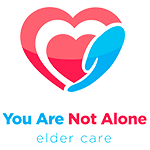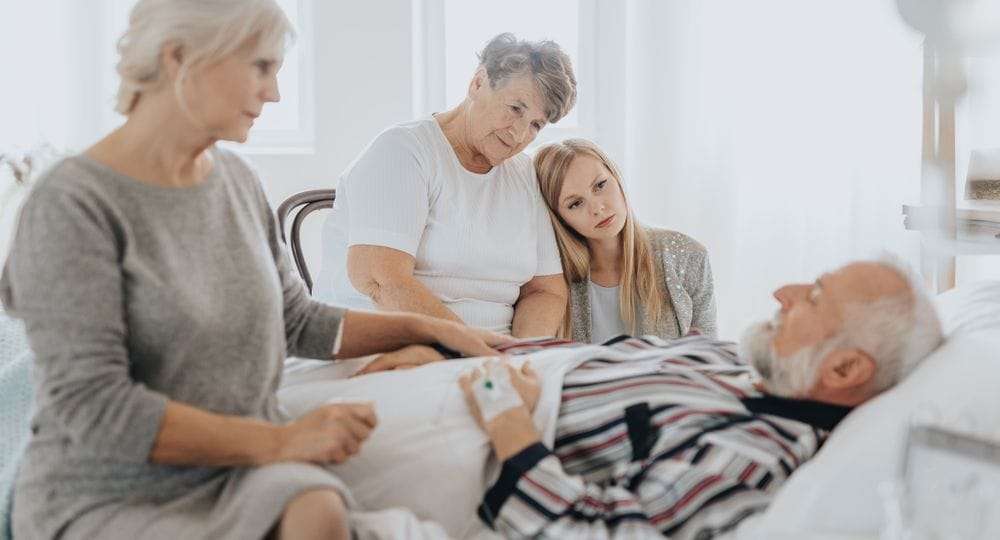Clinically managed end-of-life care has become an increasingly relevant topic for discussion as the pandemic brings illness and mortality to the forefront of our minds. Providing care for fragile, elderly patients nearing their transition from this world goes beyond learned skills. Medical personnel responsible for providing this specialized care must possess an innate sense of attention and dedication to the entire process–the humanistic part in particular.
Despite the countless legal and ethical concerns associated with end-of-life advocacy, the family, patient, and especially the primary caregiver all play an important role. With ten percent of all US healthcare spending going toward end-of-life care, it’s no wonder why many Americans are now interested in experiencing a period of medical and non-medical care before death.
End-of-life care delivery has changed
Since the twentieth century, and with advancements in science, medicine, and medical engineering, health professionals have come to occupy the spaces family and community formerly filled. Care for a dying person can be managed and made less painful with innovative medical technology. This doesn’t take away the caregiver’s importance in advocating for a loved one through the transition process.
Advocacy is a fundamental part of end-of-life care. The assistance and sensitive care provided during this period has a direct impact on the quality of a person’s final moments. More importantly, the relationship between the dying and their care team is dependent on the support and information their caregiver provides.
What does end-of-life care look like?
People can exhibit total dependency traits, including powerlessness and helplessness, as they near the end of life. Some may lose continence and the ability to speak or may be unable to exercise self-control. This is where a caregiver’s advocacy is crucial. They can represent a loved one and communicate their wishes to medical and non-medical teams. It becomes even more important for a caregiver to speak on a loved one’s behalf when their health rapidly declines.
Hopefully before this point, a person has taken steps in advance to create directives for their end-of-life decisions–giving explicit consent for medical and non-medical choices when the time comes. A person may authorize a spouse, child, family member, or caregiver to make these final decisions on their behalf. Admittedly, these are tough decisions to make and may require the support and intervention of an end-of-life doula who will guide everyone through the entire process–from creating the correct forms to arranging rituals around a loved one’s last breath.
Navigating uncertainty at the end of life
Fear of death and general discomfort around the subject can cause people to distance themselves or act in unusual ways, especially when they must confront it directly. Shared decision-making, which happens when more than one person is involved in the final choices, can create tension. Indeed, it is not unheard of for significant others or siblings to fight against a loved one’s wishes. However, all choices should be made with respect for the dying individual.
There can also be problems with compromised self-sufficiency, communication failures, and symptom management. The latter of these often brings up the issue as to whether or not symptom relief prevails over likely risks and side effects. While even the best laid plans can go different than anticipated, it’s better to have them in place than to not have them at all. Advanced directives such as the medical power of attorney, DNRs, and POLST forms can better equip families to navigate more challenging and emotional care decisions.
Aside from sitting at the proverbial bedside, the best gift we can give loved ones at the end of life is speaking up for them to make sure they receive the care and treatment that aligns with their wishes. Having tough conversation and learning what a person values most in life is a means to an honorable, comfortable death.
Adapted from Advocacy at the end of life.
Read more:
- Determining the best care at end-of-life
- End-of-life decisions should be based on quality-of-life issues
About the Contributor
Adrian Allotey is a hospice volunteer, a certified end-of-life doula, a certified reiki practitioner, and an elder companion whose life’s mission is to promote the final years as a sacred, beautiful, honorable stage of life.
As a non-medical elder companion, Adrian focuses on ensuring comfort at the end of life by providing physical, emotional, and spiritual support to the dying and their families. Founder of You Are Not Alone Elder Care, she offers a toolkit of resources that ease the anxieties of the dying and their family members including essential oils, crystals, reiki, and mindfulness practices. Her motto, “heart to heart,” speaks to the holistic elder companionship she provides.
Credits: https://www.caregiving.com/posts/what-you-need-to-know-about-advocacy-at-end-of-life

